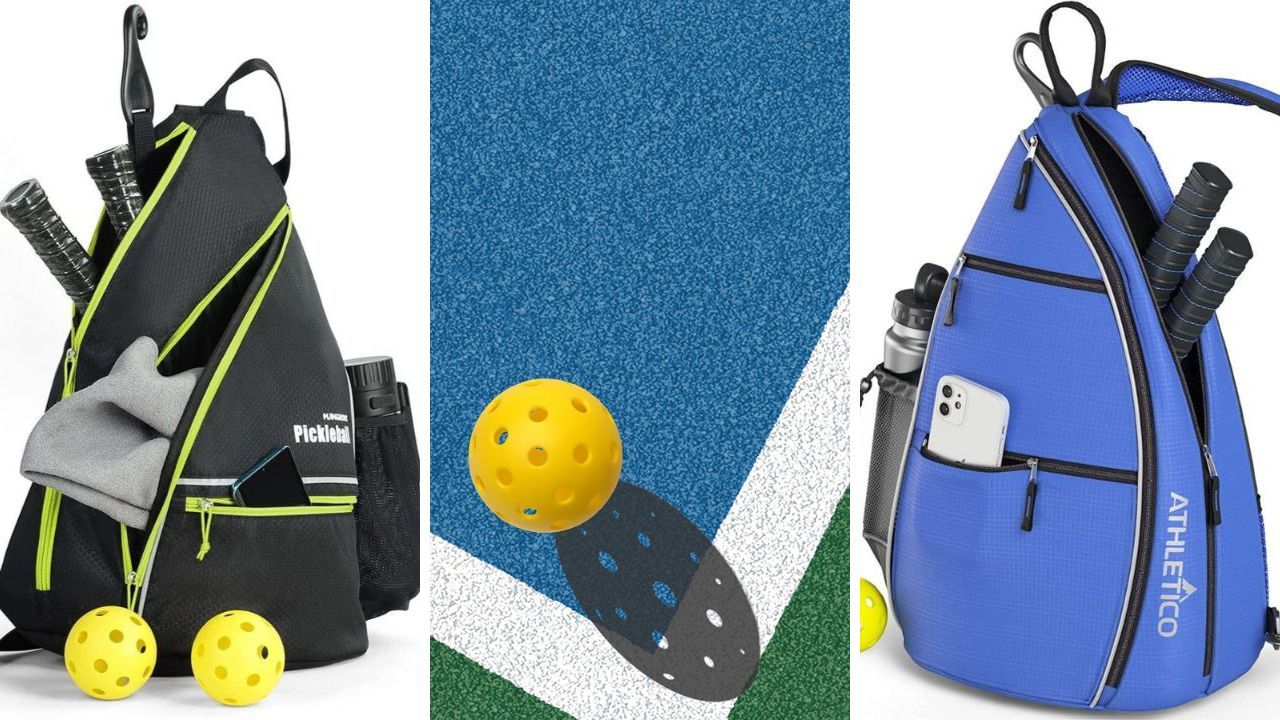Pickleball, the fun and exhilarating paddle sport that has captured the hearts of millions, continues to gain popularity around the globe.
Combining elements of tennis, badminton, and ping-pong, this accessible, fast-paced game offers players of all ages and skill levels a unique and enjoyable experience.
With the sport's rapidly growing fan base, one question frequently arises: why is it called pickleball?
In this article, we'll dive into the intriguing origins of the sport, its history, and the story behind its peculiar name.
It all started on an old badminton court, an idea, and some homemade paddles. Yes, we are talking about pickle ball - the sport that's been taking the world by storm!
What began as a senior’s game has now garnered the attention of all ages. Thanks to the USA Pickleball Association and the National Senior Games Association, this quirky sport has cemented its place in the sports world.
We can't help but chuckle at Joel's cute dog story where his furry friend chased after the ball on the first permanent pickleball court.
Needless to say, it was a disaster, but it sure made for a good laugh. Not just a funny story anymore! And speaking of paddles, the right equipment can make or break your game.
So, let's talk table tennis paddles - err pickleball paddles. Whether you're a beginner or a pro, choosing the right paddle can make all the difference in your game - and trust us, you want to be on the winning side of the court.

Origins and Evolution of Pickleball:
As we explore the captivating history of pickleball, it becomes evident how the sport has evolved from its humble beginnings to the global phenomenon it is today.
- Invented on a summer day in 1965, Joel Pritchard, Bill Bell, and Barney McCallum aimed to create an engaging activity to entertain their families when they couldn't find a complete set of equipment for badminton
- The trio improvised by using ping-pong paddles and a perforated plastic ball, marking the birth of a new paddle sport
- The first official pickleball court was built in the backyard of Pritchard's neighbor, Bob O'Brian, in 1967
- By 1972, Pickleball Inc. was formed to protect the game's development and promote its growth
- The first known pickleball tournament took place in 1976 at South Center Athletic Club in Tukwila, Washington
- As the sport gained traction, it spread across the United States and eventually worldwide, with dedicated facilities, national organizations, and international competitions emerging over the years

The Name "Pickleball":
As mentioned earlier, two popular theories attempt to explain the peculiar name of this exciting paddle sport.
Although the dog theory is often cited, it has been debunked. The pickle boat theory offers a more plausible explanation, linking the name to the sport's unique combination of elements from other racquet sports.
The name "pickleball" has now become synonymous with the sport's engaging gameplay and a strong sense of community.
The Future of Pickleball:
The growth and popularity of pickleball show no signs of slowing down. With new clubs, tournaments, and players emerging every day, the sport is poised for continued success in the years to come.
Technological advancements in equipment and playing surfaces are also expected to further enhance the pickleball experience for players worldwide.
As we delve into the intriguing history and story behind the name "pickleball," it becomes clear that the sport's success is due in large part to its accessibility, unique gameplay, and a strong sense of community.
As pickleball continues to grow and evolve, it will undoubtedly remain a favorite among players of all ages and skill levels, offering endless fun and unforgettable memories.
So, grab your paddle, gather your friends, and join the millions of others who have discovered the joy and excitement of pickleball!

How Pickleball Started and Got Its Name:
- Invented in 1965 by three American fathers – Joel Pritchard, Bill Bell, and Barney McCallum – on Bainbridge Island, Washington
- Created as a family-friendly alternative to traditional racquet sports
- Initially played with improvised equipment, such as ping-pong paddles and a perforated plastic ball
- There are two popular theories behind the origin of the name "pickleball"
The Dog Theory:
- Some believe the sport was named after the Pritchard family dog, Pickles, who would chase after stray balls during games
- However, the dog was named after the sport, not vice versa, debunking this theory
The Pickle Boat Theory:
- The more credible theory involves the term "pickle boat," which is borrowed from the sport of rowing
- In rowing, a pickle boat is composed of leftover oarsmen from various teams
- Pickleball similarly combines elements from different sports, making this theory more plausible

The Growth of Pickleball:
- Invented over five decades ago, the sport has steadily gained popularity
- Today, it's played in schools, community centers, and dedicated facilities across the globe.
- Over 4.2 million people in the United States alone are playing pickleball, with countless others participating worldwide
Global Expansion and Community Building:
As pickleball has expanded beyond the United States, the sport has found enthusiastic players in countries such as Canada, the United Kingdom, Spain, India, and Australia, among many others.
International organizations, like the International Federation of Pickleball (IFP), have formed to further promote the sport and facilitate its growth around the world.
- The IFP, established in 2010, has played a pivotal role in organizing global tournaments and championships, fostering a competitive and supportive environment for pickleball players internationally
- Various national organizations and associations also work to introduce pickleball to new regions and develop local clubs and leagues, further cementing the sport's popularity and global reach
Health Benefits and Age Inclusivity:
One of the key factors behind pickleball's rapid growth is its accessibility and appeal to a wide range of ages and fitness levels.
The sport offers numerous health benefits, including improved cardiovascular fitness, balance, agility, and mental sharpness, all while being gentler on joints compared to other racquet sports.
- Pickleball has become particularly popular among seniors, providing a low-impact physical activity that encourages social interaction and helps maintain overall well-being
- The sport has also gained traction in schools as part of physical education curricula, teaching students teamwork, coordination, and strategy while keeping them active and engaged

Technological Advancements and Equipment Development:
As the popularity of pickleball continues to soar, advancements in technology and equipment are further enhancing the player experience.
- Paddle manufacturers are developing new materials, designs, and technologies to improve performance, control, and durability, catering to the varying preferences and skill levels of players
- Evolution in court surfaces, nets, and balls has also contributed to the growth and enjoyment of the sport, ensuring optimal playing conditions and safety for participants
In summary, the growth of pickleball can be attributed to its accessibility, global expansion, health benefits, age inclusivity, and technological advancements in equipment and playing surfaces.
As the sport continues to evolve, it's clear that pickleball's popularity will only continue to rise, drawing in more players and fans from around the world.
Some Final Thoughts
As pickleball continues to flourish, understanding its history and origins provides enthusiasts with a greater appreciation for the sport.
Although the name "pickleball" may be unusual, its captivating gameplay, rich history, and a strong sense of community have helped propel the sport to new heights.
Now that you know the story behind pickleball's name, it's time to grab a paddle, hit the court, and make your mark in the world of pickleball!

FAQs:
What sports does pickleball combine?
Pickleball combines elements from tennis, badminton, and ping-pong.
How old is the sport of pickleball?
Pickleball was invented in 1965, making it over five decades old.
What equipment was originally used to play pickleball?
The sport was initially played using ping-pong paddles and a perforated plastic ball.
Where was pickleball invented?
Pickleball was invented on Bainbridge Island, Washington.
Who were the creators of pickleball?
Joel Pritchard, Bill Bell, and Barney McCallum were the co-inventors of pickleball.
What is the pickle boat theory?
The pickle boat theory suggests that pickleball was named after the rowing term "pickle boat," which refers to a boat made up of leftover oarsmen from various teams.
Is the dog theory about the origin of the name "pickleball" true?
No, the dog theory has been debunked. The Pritchard family dog, Pickles, was named after the sport, not the other way around.
How many people play pickleball in the United States?
Over 4.2 million people in the United States play pickleball.
How has the sport of pickleball evolved over the years?
Pickleball has evolved from a casual backyard game to an organized, competitive sport with official rules, dedicated facilities, and international tournaments.
What factors have contributed to pickleball's popularity?
Pickleball's accessibility, social nature, suitability for all ages, and unique combination of elements from other racquet sports have all contributed to its widespread popularity.












Member discussion